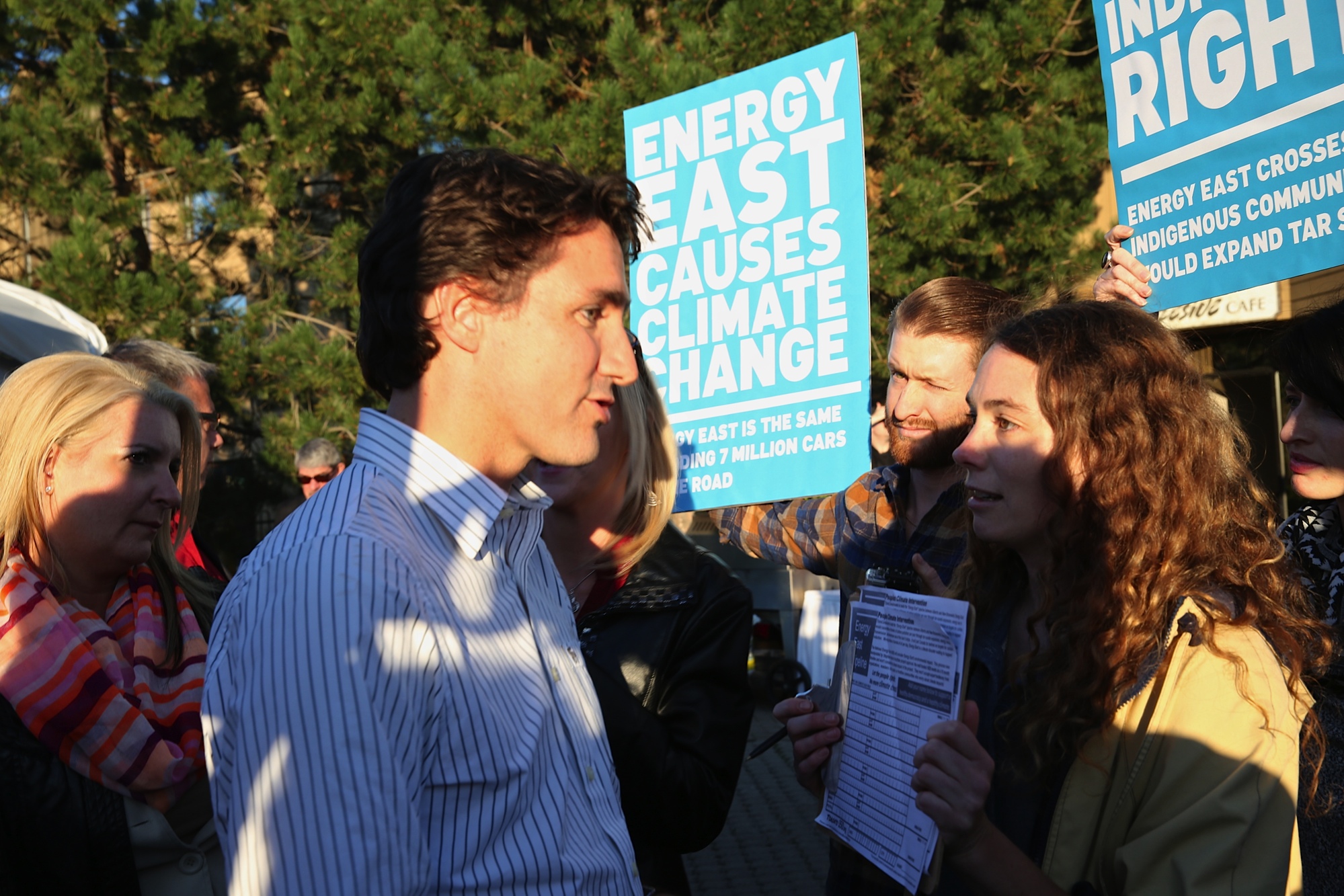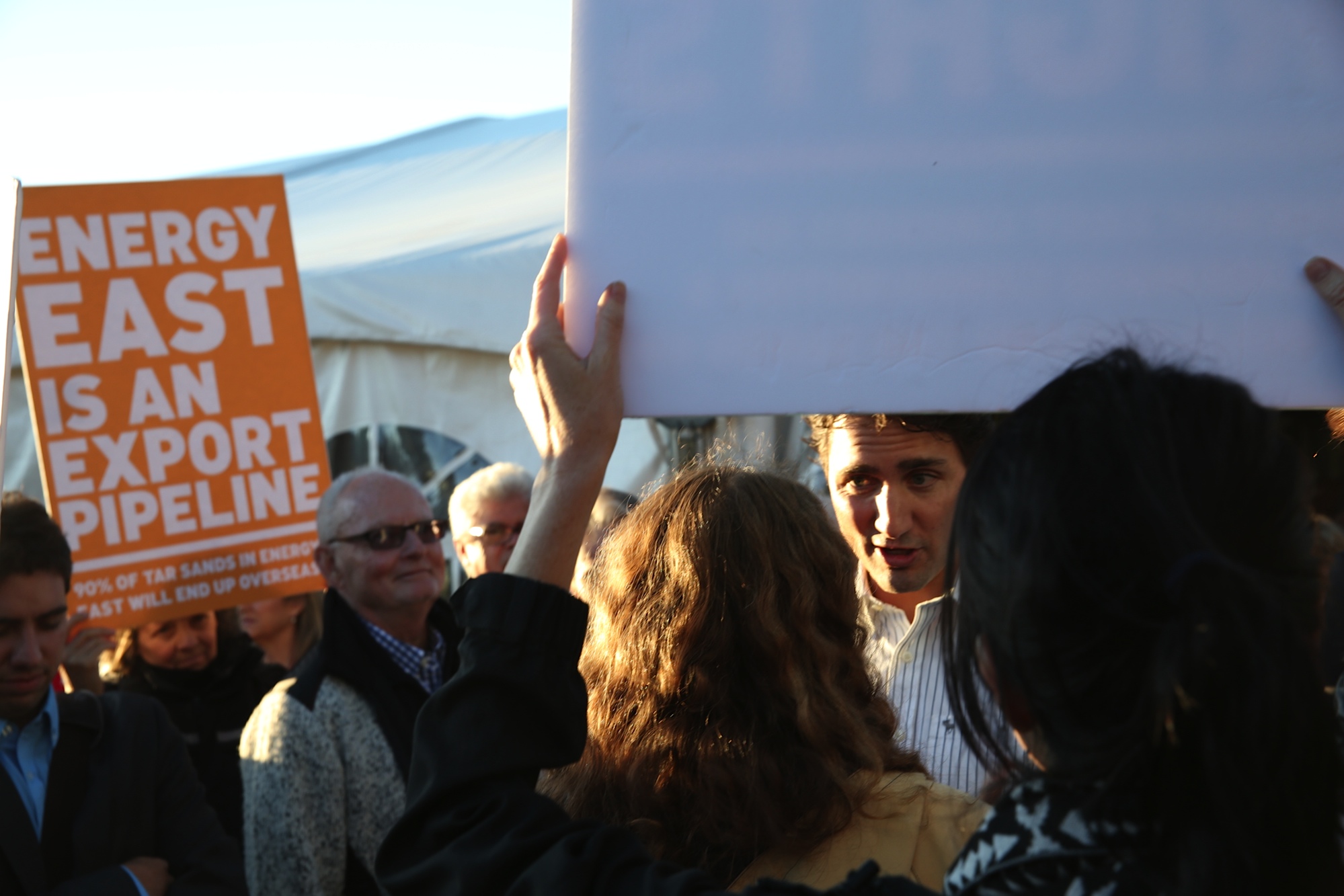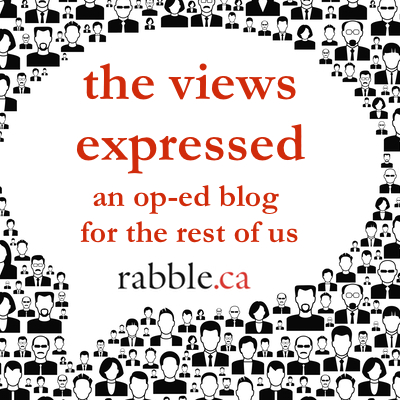We went to ask the man with seemingly the best shot of being Prime Minister a year hence, Justin Trudeau, a simple question about the tar sands and the Energy East pipeline.
We met early, had some food and drink in the Crazy Horse Saloon, north of Barrie, across from where the fundraiser for Justin Trudeau was being held, and talked strategy: How would we know when he’s coming? When and where should we set up banners and placards? What would we ask if we got the chance and who would do the asking?
As the time neared, a few of us went down to the entrance, a five minute walk from the event, and unfurled a banner reading, “Climate Justice Now.” Some friendly people honked. One person in an oversized, clean pickup made a point of revving his engine.
Minutes ticked by. We got a call from inside that Trudeau was already there. We decided to try to get in.
We didn’t set out to ruin anyone’s day, but I suspect the middle-aged woman taking tickets at the reception table, who rushed after us repeating, “this is not happening,” may blame us for doing just that.

I’m sorry for that. This fear of transgression, however — the barriers of propriety present everywhere in our society — points toward why, I think, we’re in this mess of climate change to begin with.
We like order. It’s easy, it’s predictable. We’ve organized ourselves into a modular or technological system — this piece fits here, that there, this represents that and just so — such that we’re accustomed to form, to rules, to expecting events to flow according to pre-established pattern. Of course there are exceptions, but they’re where life refuses to submit, where, for instance, the plant pushes through the pavement.
This fear we have of the unpredictable would, you’d think, be an asset — we’d be scared stiff of the impending mother of all unpredictability, also known as climate change, and be working like mad to mitigate and, now, adapt to it. But we cling stubbornly, fearfully, to what we know. We’re creatures of habit, comfort seeking missiles, as the saying goes.
When one of our group asked Trudeau, at that point surrounded by several of us holding placards, whether he would stand against the Energy East pipeline and the expansion of the tar sands, he was measured in his response, repeating twice that he supports getting energy in “responsible, sustainable ways.”
Now, one could question what Trudeau means when he says, “responsible and sustainable” — responsible to whom? Sustaining of what?
Of greater concern is his language of compromise — the political realist who understands perfectly well what he needs to do to get into power, the words he has to say, the hands he has to shake — and how this language undermines action and how this innate tendency toward order structures us, confines us, inhibits us from taking that crucial step through the doors and past the reception desk, particularly when, as now, it’s most urgently needed.

This language fixes us within our prescribed orbits, within our calendars populated with expectations, and when pushed into foreign territory we’re uncomfortable, we reflexively draw back.
I’m not naive; I understand Trudeau’s in the business of making political calculus. As an idealist, though, (no, the two aren’t incompatible, you can recognize the world as it is and still dream of the world as you want it to be) I believe leadership should articulate a better tomorrow and act to achieve it. This requires imagination and vision, as well as the courage to step away from the comfortable and into the unknown.
The urgency and magnitude of the climate crisis calls for such leadership.
To be clear, we didn’t expect Trudeau to display this type of leadership and sign our petition calling for a climate review of pipelines and tar sands activity. We expected him to remain true to his line, to not deviate from what he’s been told he needs to do to win the contest next year.
It’s also true, though, and perhaps for him as much as for us, that our presence at the fundraiser was uncomfortable, and that it opened, if only slightly, a space into which he, as well as others present, can step to take action on climate change.
It is a testament to the possibility of this type of leadership that shortly after this action it was demonstrated by nearly 400,000 in New York. The willingness to step forward, to commit to tackling a difficult challenge to regain a hopeful future, opens this space of possibility further.
We can help those who style themselves leaders to be uncomfortable, and, by doing so, open a way toward an environmentally and socially just future.
Watch the video our encounter with Justin Trudeau here!
Adam Ballah is a community organizer at canow.ca
Photos courtesy of Adam Ballah.



